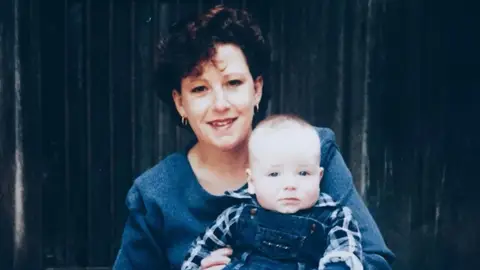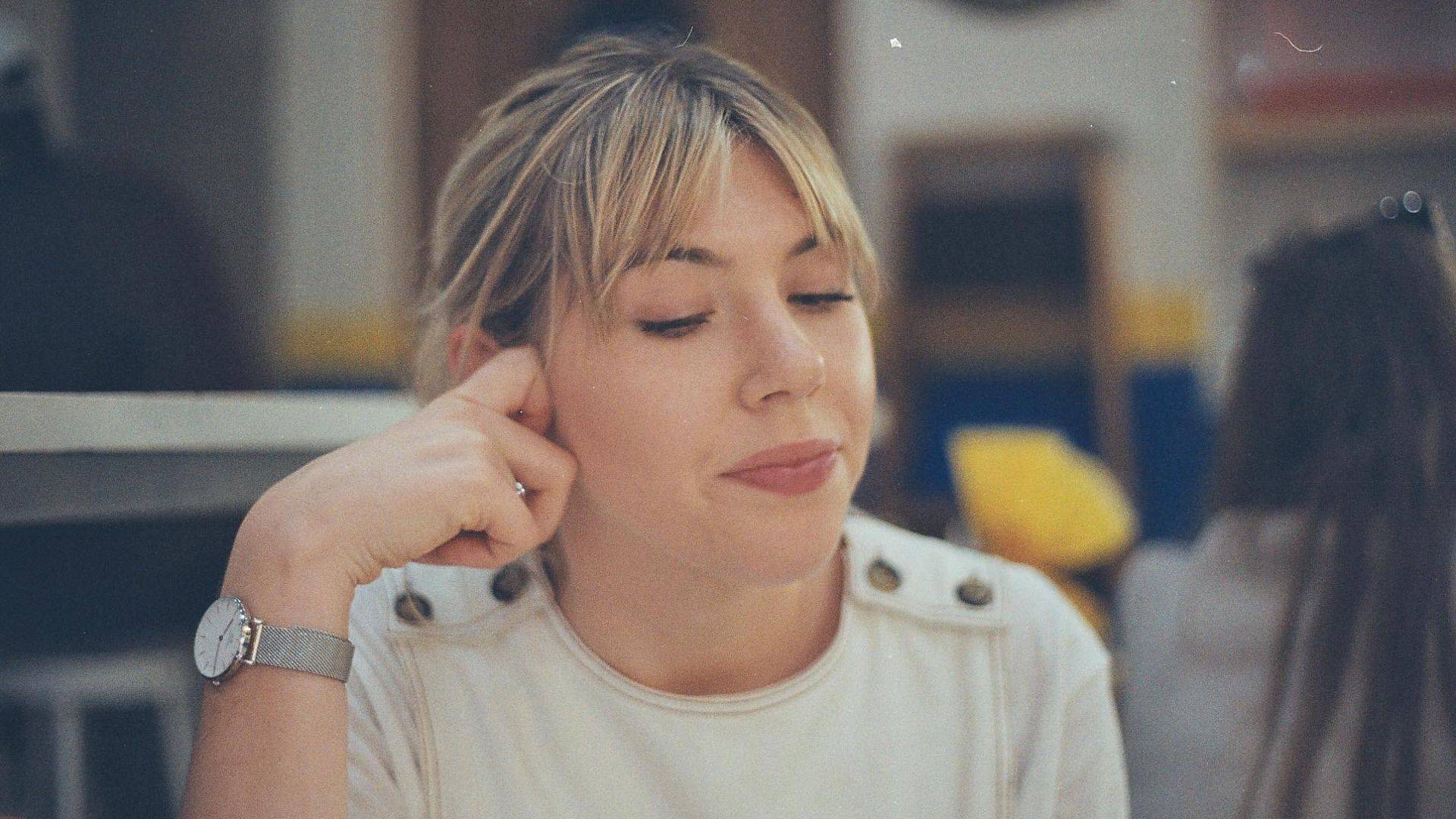'The Lessons I've Learned Since Losing Mum At 10 Years Old'

Mother's Day is such a weird fucking day for me. It's like a non-event, when everyone else – and every business – feel like they're losing their heads to make sure their Mum is celebrated. A mother's job is incredibly difficult, so they certainly deserve celebrating – all loving parents do. But it's a celebration I can't join in on. I no longer have a mother to spoil.
Mum passed away from cancer in early 2005, meaning this is my 16th Mother's Day without her. She died when I was 10 years old, and now I'm a whole-ass 26-year-old adult. In that time, I've gone through so many milestones that come with growing up, all without a key figure in my life to help guide me. Yet, I've still made it this far and, ironically, not having Mum around taught me so much about myself, parenthood and the world in general.
As I sit and reflect on this Mother's Day, here are some of the things I've learned having lost a parent. (And sending solidarity to those experiencing the same sort of emotional cyclone.)
1. It doesn’t get easier – not really
Grieving is such a fucked up process that is far from universal. Everyone’s experience with it is completely singular to them. My experience has been like a rollercoaster. Being 10, I had little concept of loss let alone grief, so I didn’t have anywhere to put those emotions. I even went to school that day. In the years since, this ignorance of my own emotions manifested itself in different ways – namely unchecked mental illness – and getting a handle on it has become easier, even if it was a decade after the fact.
But the feeling of loss never really leaves. I can go on with my day-to-day without thinking of it, but days like Mother’s Day serve as a grim reminder of someone I no longer have.
2. Single parents are actual heroes
Now for most of my adolescence, I was merely focused on how losing mum impacted me.
Partly because that’s a natural way to feel, and partly because I was entering a phase of life where I would be inherently angsty and irrationally shitty. It wasn’t until later in life that I began to realise how it must have impacted my father. We lost a parent, but he lost the love of his life – and had to continue to raise two children who didn’t know what to do with themselves. We all dealt with it in our own ways, some healthy and some not so much, but Dad still managed to raise me and my younger sister into two functioning adults. Props to any single parent out there – you’re actually making the impossible look possible.
3. In any case, Dad would be my hero anyway
If there is any silver lining in losing a parent (there isn’t), it’s that you get more time to connect with your other parent. Now, I’m very grateful and privileged to have had two parents that love me and each other. Though, throughout my teens I was resistant to emotionally open myself up to Dad – because I always felt closer to Mum. That led to certain rifts in the relationship that I won’t go into, but as an adult, we’ve forgiven each other for what we put each other through and have a strong, healthy relationship. I admire him so much, beyond what I could ever put into words. Love you, Dad.
4. What exactly a hospice is
Until maybe my late teens, I thought a hospice was just some form of special hospital. Then, after watching a film I can’t remember, I learned what a hospice actually is, and why Mum was sent there. Fucking grim.
5. Mum was right to stan Mariah Carey
I remember Mariah Carey’s album Music Box having a profound impact on my Mum’s life, to the point where I vaguely remember the song being played at her funeral. As a music-loving adult, I’m glad to know she had TASTE.
6. Dwelling on ‘what could’ve been’ does nothing
This applies to almost any facet of life, but there have been multiple instances where I wonder – and still do – how my life would be different if Mum were still here. Would I be the same person? Would I be living the same life? Would my passions and dreams and achievements be any different? However, all this dwelling does is send me into a grief-stricken and existential spiral that makes me feel far worse than I did beforehand. Not because I think life could’ve been better, but it’s just a reminder of how much I still miss her.
7. Mum was incredibly supportive of my childhood interests
Now, I didn’t realise I was bisexual (or queer) until a few years ago, coming out soon after that. But if we look back, there were telltale signs. I didn’t mind a dress up – whether it was geared to men’s or women’s clothes – and I fucking LOVED the Spice Girls. Like, Mum-recorded-a-video-tape-of-their-concert-in-Istanbul level love of the Spice Girls. Now, I still fuck with the Spice Girls from a pop fan standpoint, but I guess as a child they just made me so happy. Some parents might have tried to steer me away from showing interest in things that were stereotypically “for girls”. But Mum instead chose to foster that love in any way she could.
8. Public schools didn’t really have the capacity to treat childhood grief
Growing up, I was the only child I knew – besides my sister – who had lost a parent. It was incredibly alienating, let alone exceptionally hard to process. I vividly remember the day it happened: I went to school and all the teachers were treating me very strangely. I was being doted on – talks with the principal, with a counsellor, with two of my teachers. All I wanted to do was just to have it be a normal day, and I wasn’t given that opportunity because I was a child.
I’m not saying that they did the wrong thing, but I do think they didn’t listen to me or what I wanted. I just rolled with the punches, smiled politely, told them how I felt before moving on to the next meeting. I was exhausted having to talk about it with so many people, and all I wanted to do was to go to class and play with my friends at lunch.
Of course, this is my experience and perhaps it was just my school, but I didn’t feel like I was given what I needed to help make that day less painful.
9. There's an unspoken solidarity with others my age who have lost a parent
As I’ve gotten older and experienced more of life, I’ve met people my age who have also lost a parent, whether it be as a child or more recently. What I’ve noticed is that there’s never a real need to reassure one another about how it feels or that we know what they’re going through.
Instead, there’s a deep support that we never really acknowledge but know is always there. I can’t tell these people that I know what they’re going through, because it is such a unique experience to every individual. Some people have lost abusive parents, some people have no memories of their parents, some people lost their parents to far more violent and gruesome causes than cancer.
I can give them the nod that I’m here for them, as they are for me. But what’s for sure is that unless you’ve gone through it, there’s no way to truly know what it feels like for anyone who has.
So, please listen to us if we come to you for support – we don’t have all the answers, so there’s no way you could either.
10. I still love my Mum very, very much
And always, always will.
If you’re struggling with your mental health, there are plenty of ways to seek help. Jump on over to Headspace (ages 12-25) or call Lifeline (all ages) on 13 11 14 to speak to someone. Kids Helpline has some great resources on their website, too, and a 24/7 call line at 1800 55 1800.
Words by Jackson Langford. Hot takes at @jacksonlangford and hotter pics at @jacksonlangford.





